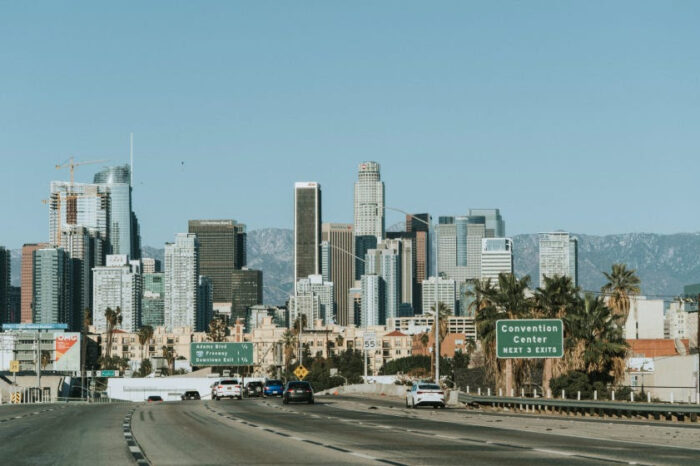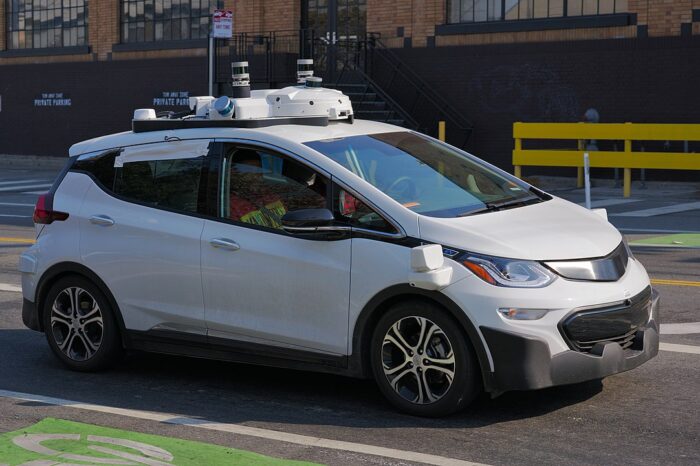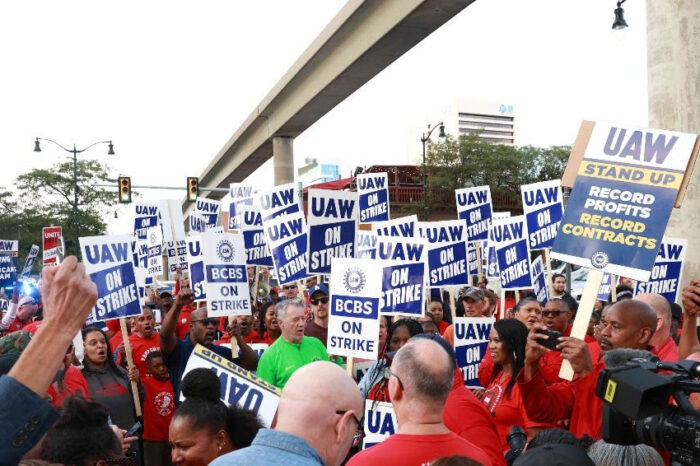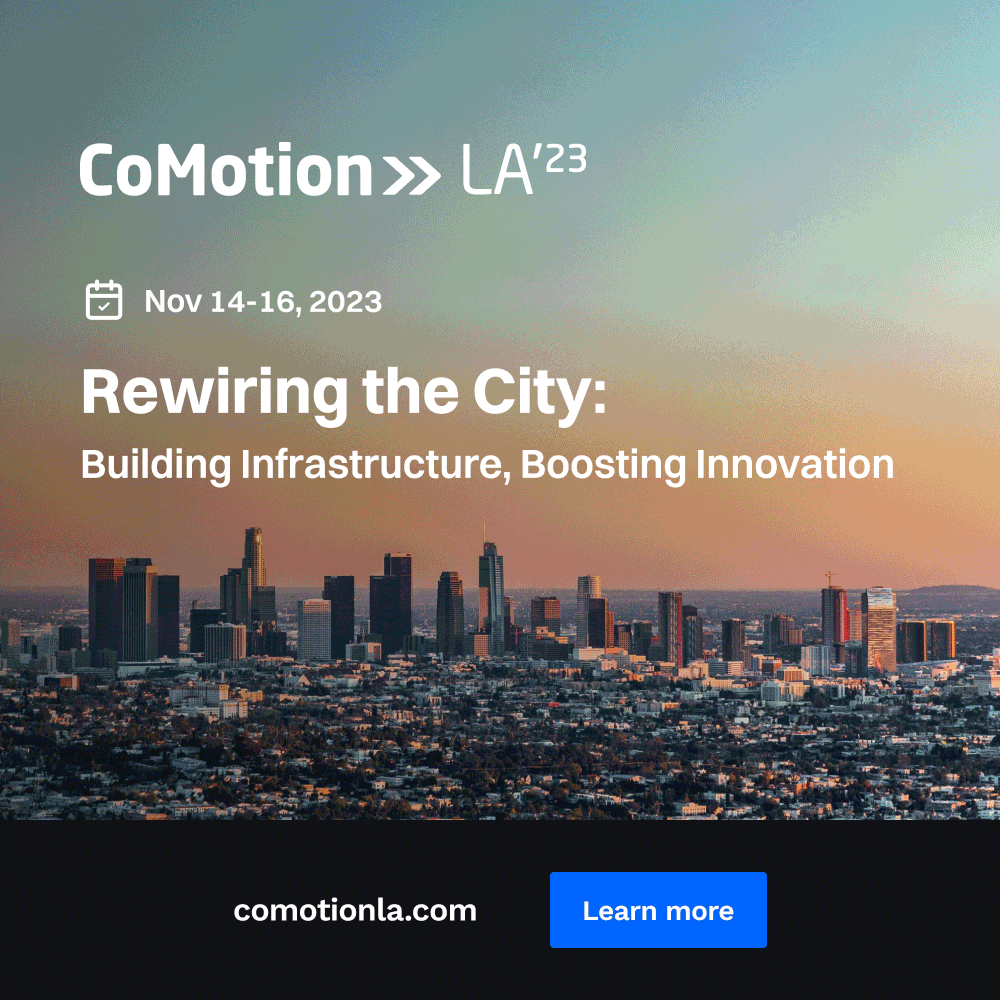The big news this week comes from the California Public Utilities Commission, which has authorized Cruise and Waymo to offer driverless rides 24/7 in San Francisco. The robotaxi operators’ limited forays in the Golden City have already proven controversial: will the opposition intensify or will public opinion simply evolve to eventual acceptance of our robot overlords? The battle 100 years ago over human-operated cars may offer some clues.
You’ve probably had your fill of depressing reminders about our rapidly warming climate, so here’s some good news: the world is making big progress on renewable energy, thanks both to market forces and trillions in government funding.
Also: Archer Aviation and Wisk Aero abruptly end a lengthy legal battle and join forces, electric bus manufacturer Proterra declares bankruptcy, Lyft considers ditching surge pricing, and much more!
Don’t miss our upcoming flagship event, CoMotion LA ‘23, Nov 14-16, 2023. Register Today and you can save 50% on your pass! Discount expires Aug 31.
![]()
Big robotaxi win: Despite intense opposition from local elected leaders, the California Public Utilities Commission votes 3-1 to allow Cruise and Waymo to operate 24/7 driverless ride-hailing services in San Francisco. Up until now, they have only been able to offer fully autonomous rides between 10 p.m. and 6 a.m. The vote comes after seven hours of public testimony that included passionate advocacy for and against robotaxis. Aaron Peskin, president of the San Francisco Board of Supervisors, says he and Mayor London Breed are discussing “next steps” and that the city may end up suing to try to stop the expansion.
From fight to flight: After two years of legal battle, eVTOL startups Wisk and Archer Aviation settle their trade secret dispute and agree to collaborate. Archer will make Wisk its exclusive provider of autonomous technology for a future version of its Midnight aircraft, supported by a $215 million investment from Stellantis, Boeing, United Airlines, Ark Investment Management, and others.
Proterra bankrupt but not broken: Proterra, a company that manufacturers batteries for electric buses, declares bankruptcy. It had an unusual journey, beginning way back in 2004, long before EVs were all the rage. It established a seemingly solid business selling batteries to transit agencies in the 2010’s and, like many other EV peers, went public via SPAC in 2021. Ultimately, the contracts it secured in 2020 and 2021 did not cover the increased manufacturing costs it faced due to the post-pandemic supply chain criss. However, Proterra says it plans to continue as a business following a bankruptcy reorganization. We’ll see.
Lyft sours on surge: CEO David Risher suggests the ride-hailing service may continue its cost-cutting strategy by getting rid of surge pricing. In an earnings call, Risher acknowledged that premium pricing can help to attract more drivers to the app, but suggested that the increased labor supply might be offset by the decrease in demand from customers who “hate it with a fiery passion.”
Rivian revs up: The EV maker estimates it will lose $4.2 billion in 2023, which is less red ink than anticipated earlier this year. After stronger-than-expected sales in Q2, it projects it will deliver 52,000 vehicles this year.
New BRT in Tel Aviv: Israel breaks ground on a new electric bus rapid transit system connecting Tel Aviv to a number of surrounding communities. It is projected to carry 77,000 passengers a day –– higher ridership than many U.S. light rail systems –– at the relatively low projected cost of $770 million. Service is scheduled to begin in 2028.
Amazon delivers transit delays: One of Seattle’s most popular bus routes has become much less reliable since Amazon asked many of its employees to return to in-person work on May 1. A big increase in car traffic has made it harder for Route 8 to stick to its schedule.
![]()
The Clean Energy Revolution is happening faster than you think: If you’re looking for some good news amidst all of the climate-related disasters this summer, the New York Times describes the tremendous progress the world is making towards a clean energy future. The speed with which renewable power is replacing coal and gas in some sectors is surprising even longtime advocates of the green economy.
Biden deserves some credit: Writing in Time, Justin Worland describes the massive investment in green technology unleashed by President Biden’s signature climate law.
The stakes in San Francisco: Writing in the Atlantic, David Zipper draws parallels between today’s fight over autonomous vehicles and the fight a century ago over allowing cars to take over urban streets. Zipper acknowledges potential benefits of AVs as well as some potentially “catastrophic” downsides.
The potential of white hydrogen: The Guardian tells the tale of how “white” hydrogen was accidentally discovered in Mali, raising the prospect of a carbon-free energy shift. Startups worldwide, backed by investors like Bill Gates, are exploring the reserves, but challenges remain, including cost-effective extraction.
Enjoy the Week in Review? Get it delivered directly to your inbox by signing up for the CoMotion NEWS newsletter.






